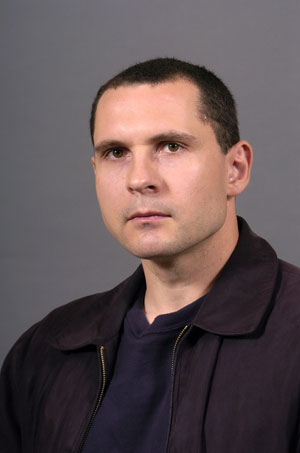Faculty Profile
Andrew Farrant
Associate Professor of Economics (2005)Contact Information
Althouse Hall
717-245-1872
Bio
Teaching interests include: Monetary Theory and Policy, Political Economy, Microeconomics. Research interests include: Political Economy, British Economic History (1945-1951), 19th century Philosophic Radicalism.
Education
- B.S., University of London, 1996
- M.A., George Mason University, 1998
- Ph.D., 2003
2025-2026 Academic Year
Fall 2025
FYSM 100 First-Year Seminar
The First-Year Seminar (FYS) introduces students to Dickinson as a "community of inquiry" by developing habits of mind essential to liberal learning. Through the study of a compelling issue or broad topic chosen by their faculty member, students will:
- Critically analyze information and ideas
- Examine issues from multiple perspectives
- Discuss, debate and defend ideas, including one's own views, with clarity and reason
- Develop discernment, facility and ethical responsibility in using information, and
- Create clear academic writing
The small group seminar format of this course promotes discussion and interaction among students and their professor. In addition, the professor serves as students' initial academic advisor. This course does not duplicate in content any other course in the curriculum and may not be used to fulfill any other graduation requirement.
ECON 111 Intro to Microeconomics
A study of the fundamentals of economic analysis and of basic economic institutions, with particular emphasis upon consumer demand and upon the output and pricing decisions of business firms. The implications of actions taken by these decision-makers, operating within various market structures, upon the allocation of resources and the distribution of income are examined. Special attention is given to the sociopolitical environment within which economic decisions are made.
ECON 500 Independent Study
Spring 2026
ECON 112 Intro to Macroeconomics
A study of the fundamentals of economic analysis and of basic economic institutions, with particular emphasis upon national output, employment, and price levels. The monetary and financial system is explored together with problems of economic stability. Monetary and fiscal policy procedures are analyzed and evaluated in light of the current economic climate. Special attention is given to the historical development of major economic institutions.Prerequisite: 111.
ECON 247 Money and Banking
A study of the role of money and credit in the U.S. economy. The nature of money, the structure of the banking system in the context of a rapidly changing financial institutional environment, and the Federal Reserve System are examined. Various theories of money as guides to monetary policy are compared and contrasted. Neoclassical approaches will predominate, although some alternative approaches will be explored.
Prerequisite: 112.
